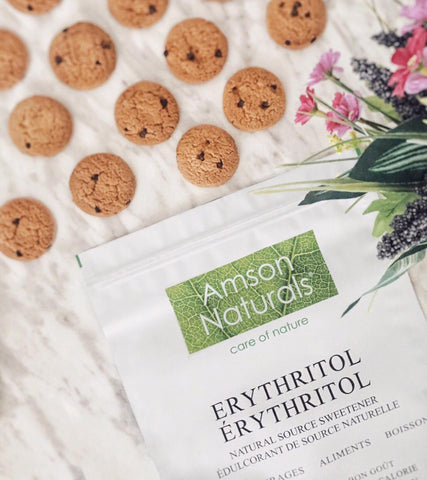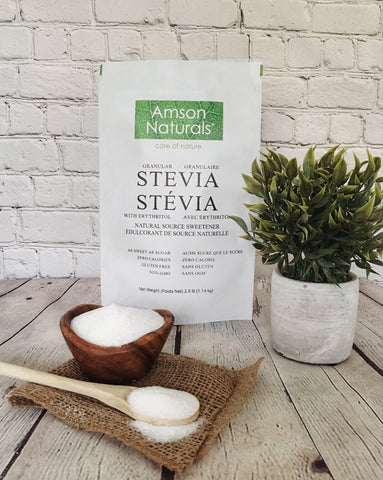Erythritol vs Stevia: The ultimate showdown.
-
What are Natural Sweeteners?
Sugar is normally used to describe any sweet-tasting, soluble compound carbohydrate used mainly for intensification of the taste of food. Sweeteners are derived from various plants, animal and synthetic sources. Therefore, each source serves a different purpose and hence has its own sets of virtues and vices. If you hold a sweet tooth, you should be cautious about what sweetener is used to create those sweet delicacies you enjoy.
-
All you need to know about Erythritol.
Erythritol is a Natural source sweetener with minimum caloric content but a full sugar taste profile. It appears as white crystalline or powdered odourless product. It is considered natural because it occurs in nature and it is made from fruits and plants and the process used to make is yeast fermentation.
It has got a unique metabolic profile. It has 4 carbon sugar alcohol (polyol) with a very small molecular weight (122g/mol).Erythritol qualifies it as polyol with the lowest caloric value (almost zero) and highest digestive tolerance of all polyols and makes it non-laxative at typical polyol consumption levels. In addition, it does not increase the blood sugar and is suitable for people with diabetics.
It is used as a natural sweetener in foods and beverages and perfect for Keto and Paleo recipes.
In food it can be used in - Bakery, Cereals, Snacks, Confectionery, Dairy, Desserts, Ice-Cream, Ready Meals, Instant Food, Sauces, Dressings, Seasonings.
In beverages it can be used in - Soft Drinks, Instant Drinks, Syrups, Juice Drinks, RTD Tea and Coffee, Sports Drinks, Waters.
-
Stevia as a sweetener?
Stevia is a substitute for sugar that is derived from a plant and has no calories. The stevia plant belongs to the Asteraceae family. Stevia is completely calorie-free, and it is 200 times sweeter than the sugar of equal measure. The body tends not to metabolize the glycosides that stevia contains, so it holds zero calories similar to some other natural sweeteners.
-
Stevia vs Erythritol.
Stevia-based sweeteners are made with a substance which is found in the stevia plant called Rebaudioside A, which is almost 200 times sweeter than you daily sugar. Reb-A can't be metabolized by our system, so it does not have any calories or affects the blood sugar levels in your body, but some stevia-based sugar substitutes contain other ingredients that might contribute a minimalised amount of calories per serving.
Erythritol is also a type of sugar alcohol that is approximately 60 to 80 per cent as sweet as sugar, but it isn't completely metabolized by our body, so it has a very restricted effect on our blood sugar levels. Erythritol contains negligible calorie count.
The basic difference between Erythritol and Stevia is that sometimes stevia affects our taste receptors with a bitter aftertaste.
So, the best way to deal with this is to mix both in correct proportions before use.




Leave a comment